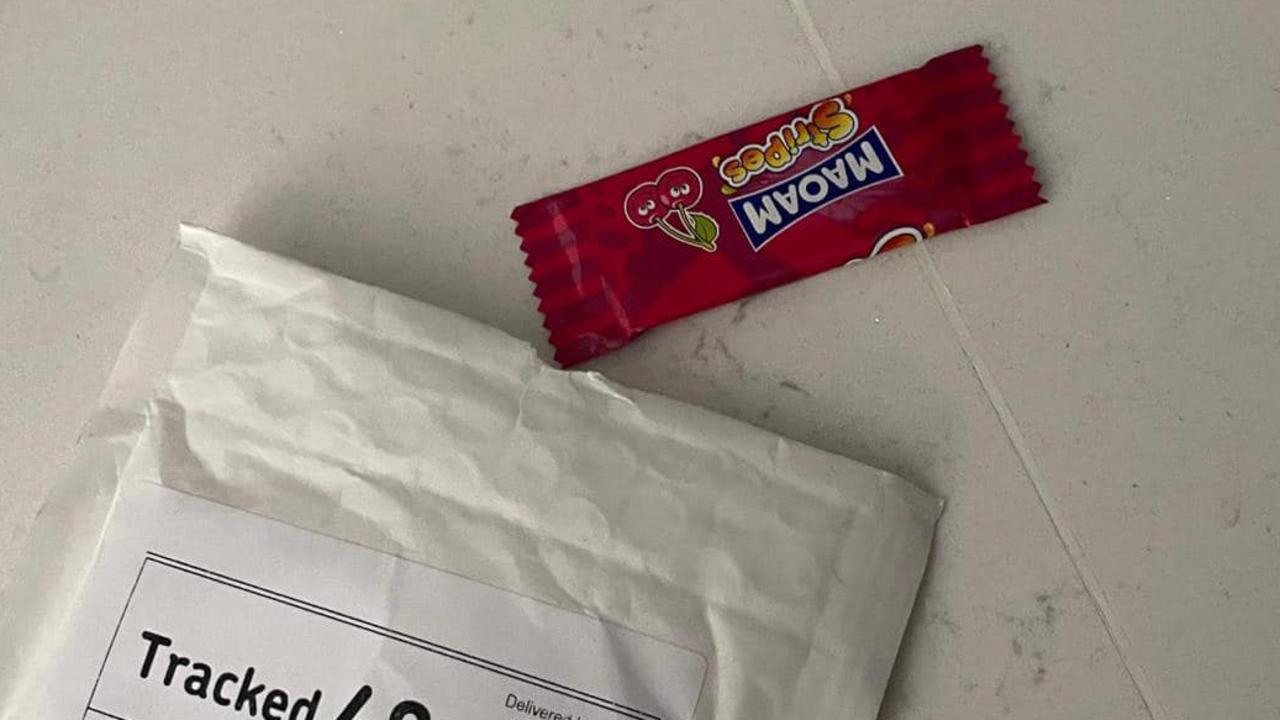[ad_1] A sinister theory has emerged after a woman was repeatedly sent packages containing a single lolly without ever making an order.The lolly, a
[ad_1]
A sinister theory has emerged after a woman was repeatedly sent packages containing a single lolly without ever making an order.
The lolly, a Maoam Stripes, was pictured with an English Royal Mail envelope by a concerned woman, who speculated something suspicious was to blame.
“We keep receiving envelopes containing one sweet to our address but each time a different fake name,” she wrote in a post to social media.
Further investigation revealed the tactic was likely one commonly employed by sellers of products working to create fake online reviews to bolster their sales.
It’s a method called “brushing” and operates as marketing fraud, unlike typical scams with the objective to steal money from victims.
“The purpose is for the perpetrator, a seller on Amazon, for example, to boost their ratings by creating ‘fake’ reviews of their products,” David Emm, principal security researcher at Kaspersky, told Yahoo.
“I say ‘fake’ because the reviews are real, but they’re created by the seller.”
Sellers target random names and addresses from public sources like the electoral roll or data leaks from hackers, then place orders of their own goods from fake accounts.
The recipient receives an item of low value in place of the actual product, with the process allowing the seller to write a product review from the fake account.
The idea behind having more reviews is that they support a seller’s product by making it seem more legitimate.
“While this might sound like a good problem, it’s actually a tactic they use to make certain products appear more popular than they actually are, which can improve their rankings to unsuspecting customers,” head of EMEA at McAfee, Vonny Gamot, told the publication.
“If a seller sends out a parcel to someone’s address, that counts as a ‘legitimate’ purchase, which pushes the product further up Amazon’s algorithm, therefore resulting in more genuine purchases.”
Ms Gamot warned that once personal information had been accessed by sellers, it could later be used by scammers to guess “passwords, access bank account information or find your social media profile to create a fake identity in your name”.
She said anyone who received an unsolicited delivery needed to report it to the company the seller was selling goods on.
Cybercrime expert Simon Smith said brushing had also become a prominent issue in Australia, and in particular as the country locked down in early 2020.
“I think back a few years ago, it probably was more innocent, in the sense that it was just about reviews,” Mr Smith told ABC News.
“But I would be considering it a lot more serious now, considering the fraud potential, and especially the money-laundering issues that are going on and the scams that are going on at the moment. People could actually have their identity and their names being used for crimes they didn’t commit.”
[ad_2]
Source link



COMMENTS